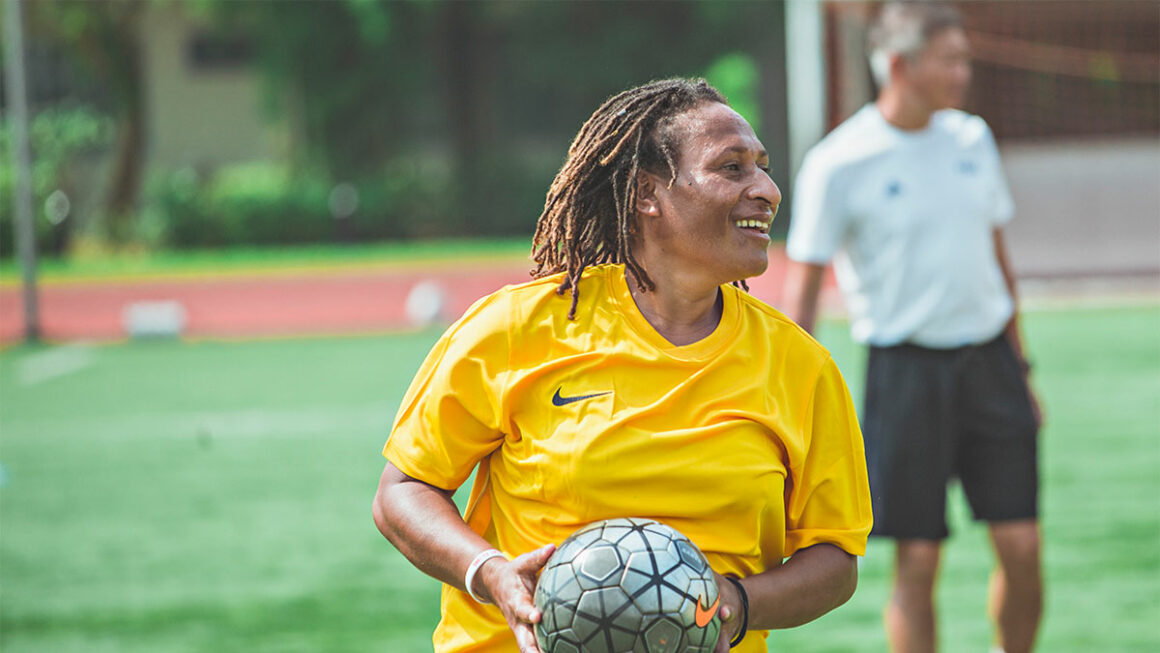With these special children, I learn as much from them as I hope they do from me.
I remember the day that one of my Special Olympics athletes fainted on the field. We were conducting try-outs for the football team.
There was a girl who was extremely enthusiastic and excited to play. I was thrilled to see such energy in her.
During the first half of the game, she fainted without warning. I was the only coach around, and I immediately rushed her to the hospital to seek medical attention. It turned out that she was so excited about the try-outs she had skipped breakfast that morning.
That night, I stayed with her at the hospital and thought about how fortunate we were to have each other’s company.
I am thankful that my family is supportive and shares the same passion as me. They don’t hold it against me for spending long hours training and being with the athletes. Occasionally, I even bring my children along to my coaching sessions – they sometimes partner up with the athletes to get some action on the court!
As a parent, I know I must expose my children to people with intellectual disabilities, and teach them to always show love, kindness and, respect. By educating them from a young age, I hope to positively shape their perception of people who are different from them.
In the eyes of the public, people with intellectual disabilities are seen to be very vulnerable and are therefore often treated differently. There may be times where this is necessary, but altogether, they should not be thought of as helpless or less capable than us. They have hidden qualities and abilities. Given the right opportunities and motivation, they can really blossom to become successful individuals.
I have learnt lots in the past five years as a coach at Special Olympics Papua New Guinea. I picked up sign language, learnt how to manage the behavior of children with intellectual disabilities, and how to communicate better with them.
There have been a few athletes with Down Syndrome who have played for my team. When they score a goal, their faces light up immediately. That is one of the most gratifying moments for me as a coach.
With these children, I learn as much from them as I hope they do from me. This experience has helped to build my character, allowing me to become a better version of myself.
For one, I have learnt to be more patient and resilient. As a volunteer, one of the biggest challenges I faced was that of miscommunication with the athletes. At times, they would fail to understand my intentions and misinterpret me, resulting in them getting upset.
Instead of getting frustrated and worsening the situation, I learnt to be patient and slowly built trust with them – eventually, all misunderstandings would be resolved. I encourage everyone to volunteer in any way they can. There are certainly sacrifices that must be made along the way. To me, these children with intellectual disabilities are worth the sacrifice.

